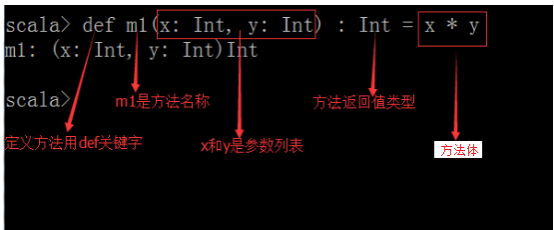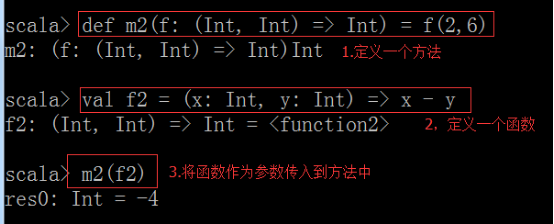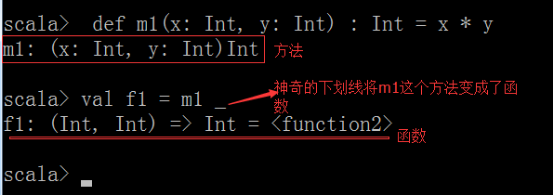1. Declare variables
package cn.itcast.scala object VariableDemo { def main(args: Array[String]) { //Variable values defined with val are immutable, equivalent to variables modified with final in java val i = 1 //Variables defined with var are changeable, and val is encouraged in Scala var s = "hello" //The Scala compiler automatically infers the type of the variable and specifies the type if necessary. //Variable name comes first, type comes last val str: String = "itcast" } }
2. Common types
Scala, like Java, has seven numerical types Byte, Char, Short, Int, Long, Float and Double (unpackaged type) and a Boolean type.
3. Conditional expressions
Scala's conditional expressions are concise, such as:
package cn.itcast.scala object ConditionDemo { def main(args: Array[String]) { val x = 1 //Judge the value of x and assign the result to y val y = if (x > 0) 1 else -1 //Print the value of y println(y) //Supporting mixed type expressions val z = if (x > 1) 1 else "error" //Print the value of z println(z) //If else is missing, it is equivalent to if (x > 2) 1 else () val m = if (x > 2) 1 println(m) //Every expression in scala has a value, and scala has a Unit class, written as (), which is equivalent to void in Java. val n = if (x > 2) 1 else () println(n) //If and else if val k = if (x < 0) 0 else if (x >= 1) 1 else -1 println(k) } }
4. Block expressions
package cn.itcast.scala object BlockExpressionDemo { def main(args: Array[String]) { val x = 0 //In scala, {} class contains a series of expressions. The value of the last expression in the block is the value of the block. //Here's a block expression val result = { if (x < 0){ -1 } else if(x >= 1) { 1 } else { "error" } } //The value of result is the result of a block expression. println(result) } }
5. cycle
There are for loops and while loops in scala, and for loops are more common.
For loop grammar structure: for (i<-expression/array/set).
package cn.itcast.scala
object ForDemo {
def main(args: Array[String]) {
//For (i < - expression), expression 1 to 10 returns a Range (interval)
//Each cycle assigns a value in the interval to i
for (i <- 1 to 10)
println(i)
//For (i < - arrays)
val arr = Array("a", "b", "c")
for (i <- arr)
println(i)
//Advanced for loop
//Each generator can take a condition, note that there is no semicolon before if
for(i <- 1 to 3; j <- 1 to 3 if i != j)
print((10 * i + j) + " ")
println()
//For derivation: If the loop body of a for loop starts with yield, the loop builds a set
//Each iteration generates a value in the set
val v = for (i <- 1 to 10) yield i * 10
println(v)
}
}
6. Calling methods and functions
Operators such as + - */% in Scala work as well as Java, and bitwise operators & | ^ >> *.
It's just a little special: these operators are actually methods.
For example: a + b
This is an abbreviation of the following method calls:
a.+(b)
Method B can be written as a. Method (b)
7. Definition of methods and functions
1. Definition method
The return value type of the method can not be written, and the compiler can deduce it automatically, but for recursive functions, the return type must be specified.
2. Defining Functions
3. Differences between methods and functions
In functional programming languages, functions are "first-class citizens" that can be passed and manipulated like any other data type.
Case: First define a method, then define a function, and then pass the function into the method.
package cn.itcast.scala object MethodAndFunctionDemo { //Define a method //Method m2 parameter requires a function whose parameters must be of two Int types //The return value type is also Int type def m1(f: (Int, Int) => Int) : Int = { f(2, 6) } //Define a function f1, parameter is two Int types, return value is an Int type val f1 = (x: Int, y: Int) => x + y //Define a function f2 again val f2 = (m: Int, n: Int) => m * n //main method def main(args: Array[String]) { //Call the m1 method and pass in the f1 function val r1 = m1(f1) println(r1) //Call the m1 method and pass in the f2 function val r2 = m1(f2) println(r2) } }
4. Convert methods into functions (magical underscores)